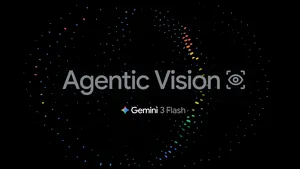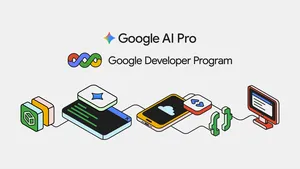Meet the students that are changing the world through technology
Each year, the Google for Developers Solution Challenge empowers university students from around the world to leverage their technical skills — and Google technology — to tackle one or more of the UN's 17 Sustainable Development Goals. This annual challenge culminates in a live demo day featuring 10 selected teams, where three top prizes and one people’s choice award will be given out.
This year's winners, from South Korea, India and Nigeria, have harnessed technology in groundbreaking ways to help their communities. Let's meet the winners.
ATTI — Pukyong National University Daeyeon Campus, South Korea
South Korea faces an escalating dementia crisis fueled by its rapidly aging population. With an estimated 786,000 cases in 2021 and projections of continued growth in the coming decades, the country urgently needs innovative solutions to address this pressing issue.
A team of students from South Korea's Pukyong National University took on this challenge, focusing on two critical issues faced by individuals with mild dementia due to memory loss: difficulty recalling important life events and managing daily routines. Recognizing the progressive nature of memory loss in dementia, the team sought to enhance the quality of life for those affected. Their solution, ATTI, is a mobile app featuring a friendly voice assistant designed to help individuals with mild dementia manage memory loss.
The app, developed using Flutter for broad user reach across Android and iOS platforms, leverages Firebase for member management and feature development. By incorporating Google Cloud features and Gemini API, the team created the chatbot dialog feature "ATTI," which aims to enhance communication, foster psychological stability and support lifestyle patterns for those living with dementia.
The ATTI team (left to right) Jieun Lee, SuJeong Park, HongJu Lee, Jueun Jeon

Spoon Share — Deogiri Institute of Engineering and Management Studies, Aurangabad, India
While food in some parts of the world is wasted daily, millions worldwide struggle to find a single meal. This waste not only squanders resources but exacerbates hunger and malnutrition among vulnerable populations like children and immigrants.
Spoon Share aims to reduce food waste and hunger by connecting donors with those in need, facilitating the redistribution of surplus food from events and restaurants.
This team used Flutter and Firebase to create a smartphone app that helps people find free food. People can use the app to see where free food is available and share information about places offering food, which is displayed on a map using the Google Maps API. Organizations and volunteers can check this information and approve it to ensure accuracy. The app also shows the exact location of the food on a map, stores pictures of the food, and helps people find the correct address when they search for it.
The Spoon Share team (left to right) Krishna Aute, Sanika Chavan, Mohammed Rehan, Shubham Pitekar

Alpha-Eye — Ladoke Akintola University of Technology, Nigeria
In Sub-Saharan Africa, preventable vision impairments affect millions, leading to irreversible vision loss and limited opportunities. Lack of awareness, early detection and healthcare support contribute to this major health issue.
Alpha-Eye, an AI-powered mobile app, is tackling this problem by empowering individuals and healthcare professionals to detect eye diseases early. By promoting early intervention, Alpha-Eye helps prevent long-term care needs and reduces the risk of vision loss.
The app uses a combination of programming languages and technologies to handle everything from user logins and data storage to artificial intelligence features and security. The team used tools like ReactJS, Flutter and Python to build the app, and they're using Google Cloud services to manage the app's infrastructure and ensure it runs smoothly.
The Alpha-Eye team (left to right) John Olaniyi, Testimony Adio, Peter Ojo, Glory Olaifa

People’s Choice winner: Saheli — Dr. B. R. Ambedkar National Institute of Technology (NIT), Jalandhar, India
Saheli is a mobile app designed to enhance women’s safety in urban cities like Delhi. It addresses the specific challenges women face, such as harassment and violence during commutes, by providing features like SOS alerts, safe navigation and offline accessibility. The app utilizes Flutter for the frontend, Firebase for real time updates, Google Cloud Platform for scalability and reliability and Gemini API to power a chatbot that guides users through the app's safety features. By empowering women with accessible tools and resources, Saheli fosters a safer and more inclusive environment for everyone.
The Saheli team (left to right) Apoorv Yash, Priyanshu Agrawal, and Yuvraj Singh (and Agrim Saxena, not pictured)

Congratulations to all the winning teams and a big thank you to everyone who participated in this year's competition. We’re thrilled to witness the incredible ways this technology is being used to positively impact communities.






